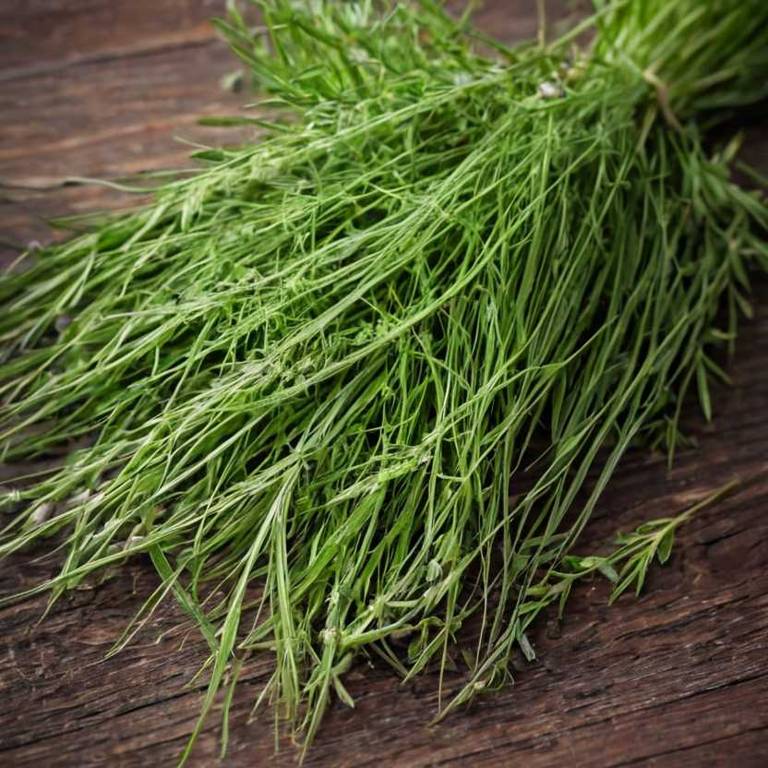By Leen Randell
Updated: Jul 26, 2024
10 Medicinal Constituents Of Elymus Repens (Couch Grass)

Elymus repens has active constituents such as flavonoids, alkaloids, and phenolic acids.
These compounds possess anti-inflammatory and antioxidant properties, which can help alleviate symptoms of arthritis and digestive issues. The constituents in couch grass may also exhibit antimicrobial activity, making it potentially useful in wound healing and prevention of infections.
These medicinal properties can improve the quality of life for individuals suffering from chronic conditions.
This article explains in details the 10 best active constituents of Elymus repens.
1. Saponins
Elymus repens saponins is a group of compounds found in its roots and leaves.
These saponins have been shown to have a range of biological activities, including anti-inflammatory and antimicrobial properties. Research has also suggested that they may have potential as anticancer agents, although more study is needed to confirm this.
The saponins in Elymus repens may also contribute to its ability to inhibit the growth of other plants.
2. Flavonoids
Elymus repens flavonoids is a group of compounds found in its leaves and roots.
These flavonoids, including quercetin and kaempferol, have been shown to possess antioxidant and anti-inflammatory properties. Studies have demonstrated their potential in reducing oxidative stress and inflammation in various cell types, which could contribute to the plant's medicinal value.
Further research is needed to fully understand the effects of these flavonoids in the human body.
3. Phenolic acids
Elymus repens phenolic acids is a type of bioactive compound found in its roots.
These phenolic acids, including ferulic, sinapic, and vanillic acids, have been shown to possess antioxidant, antimicrobial, and anti-inflammatory properties.
Studies have indicated that these compounds may contribute to the plant's ability to adapt to stress conditions and potentially inhibit the growth of neighboring plants.
4. Triterpenes
Elymus repens triterpenes is a compound that has been found to have various biological activities.
These triterpenes have been isolated from the roots of the plant and have been studied for their potential medicinal properties, including anti-inflammatory and antioxidant effects.
They are also known to have cytotoxic and antimicrobial activities, making them a subject of interest for further research and development.
5. Sterols
Elymus repens sterols is a type of chemical compound found in its roots and shoots.
These sterols have been identified as a potential anti-inflammatory and antioxidant agent. Studies have shown that extracts from Elymus repens can inhibit the production of pro-inflammatory enzymes and protect against oxidative stress.
This suggests that Elymus repens sterols may have therapeutic applications in reducing inflammation and improving overall health.
6. Alkaloids
Elymus repens alkaloids is a compound that has been extracted from its roots.
The alkaloids, which include compounds such as berberine and iridoid glycosides, have been found to possess anti-inflammatory, antimicrobial, and antioxidant properties. These compounds may also exhibit potential antineoplastic and cytotoxic effects.
However, more research is needed to fully understand their effects on human health and the environment.
7. Glycosides
Elymus repens glycosides is one of its secondary metabolites.
These glycosides have been reported to exhibit a range of biological activities, including anti-inflammatory and antimicrobial properties. Elymus repens glycosides have also been shown to have antioxidant effects, scavenging free radicals and protecting against oxidative stress.
Research has identified several glycosides in Elymus repens, including repesin, repenoside, and repenoside B.
8. Quercetin
Elymus repens quercetin is a flavonoid compound that has been identified in its extracts.
This compound is known for its anti-inflammatory and antioxidant properties. Research has shown that quercetin can inhibit the growth of certain cancer cells and has been found to have a positive effect on heart health.
Studies are ongoing to investigate its potential medicinal applications.
9. Kaempferol
Elymus repens kaempferol is a type of flavonoid compound found in the plant.
It is known for its antioxidant and anti-inflammatory properties. Kaempferol has been shown to have potential health benefits, including reducing cancer risk, improving cardiovascular health, and exhibiting anti-aging effects.
Studies have also found that it has antimicrobial and antiviral properties, making it a compound of interest for natural medicine and plant-based treatments.
10. Catechins
Elymus repens catechins is a type of polyphenol compound found in its plant extracts.
Catechins have antioxidant and anti-inflammatory properties, which may contribute to the potential health benefits associated with E. repens consumption.
They have been studied for their ability to reduce oxidative stress and improve cardiovascular health, among other benefits.